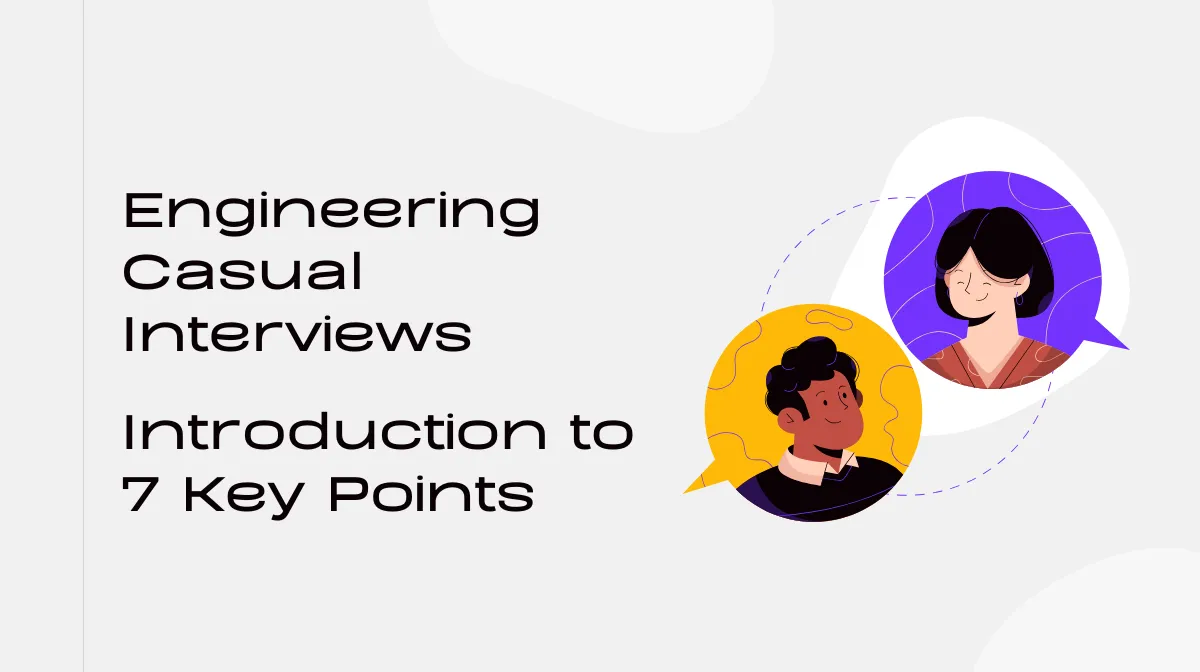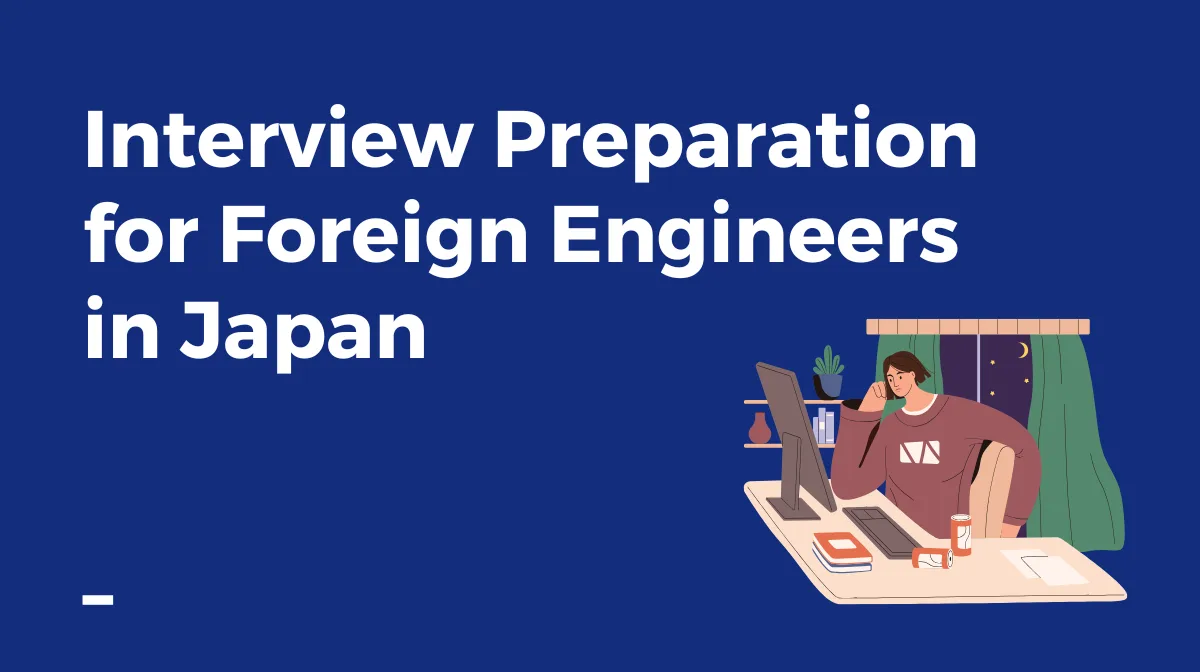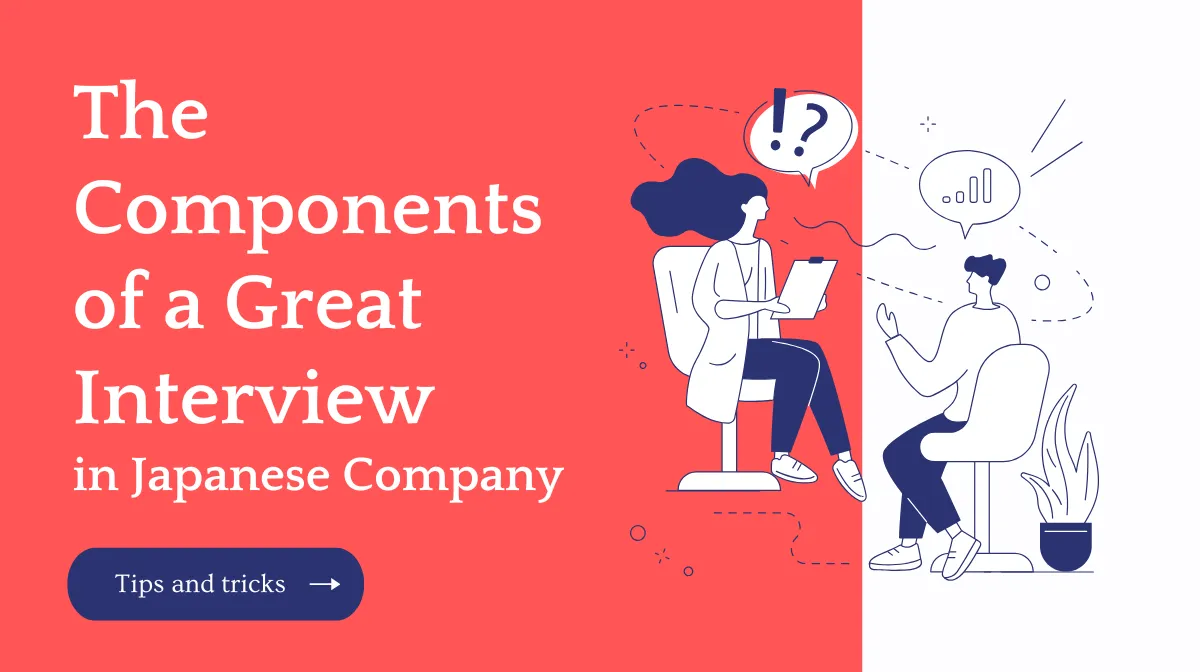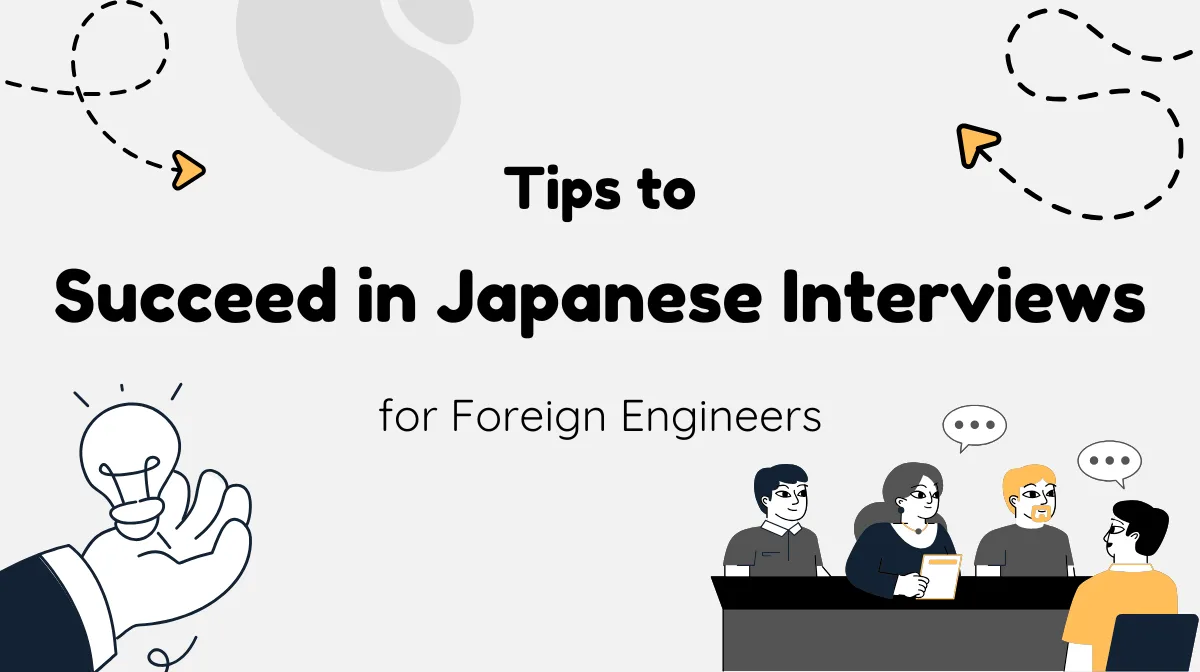Many companies conduct casual interviews as part of their engineering recruitment process.
According to a survey by Levtech Career, one in three engineers who are job hunting express interest in casual interviews.
This article provides detailed guidance on specific points and practical advice for successful casual interviews.
- How to effectively prepare for and navigate engineering casual interviews with confidence
- Key questions to ask and answer during casual interviews to demonstrate your technical expertise
- Practical strategies to make the most of casual interviews for career advancement
1.What is a Casual Interview? Essential Knowledge to Know

What exactly is a casual interview? Let’s start by understanding the basic points.
Definition and Purpose of Casual Interviews
A casual interview is a two-way communication opportunity between a company and a job seeker that takes place before the formal selection process.
As the word “casual” suggests, it allows both parties to confirm mutual compatibility and expectations through more flexible and open dialogue.
Company’s Objectives
- Understand the candidate’s technical capabilities and experience level
- Confirm cultural fit with the organization
- Assess the candidate’s commitment to changing jobs while considering specific assignments and roles
Job Seeker’s Objectives
- Confirm the company’s technology stack and development environment
- Gain a deeper understanding of organizational culture and work style
- Explore career growth possibilities while preventing post-hiring mismatches
Casual interviews are important opportunities for both companies and job seekers.
Why Companies Are Prioritizing Casual Interviews with Engineers Now
The importance of casual interviews in the engineering recruitment market has been increasing in recent years.
The first reason is to prevent hiring mismatches. By deepening mutual understanding before formal selection, the risk of post-hiring mismatches can be significantly reduced.
It also allows for detailed confirmation of company culture and technical environment, enabling both parties to use their time and effort efficiently.
The second factor is changes in the engineering recruitment market. With the proliferation of scout services and direct recruiting, competition for talented engineers has intensified.
The third is the spread of remote work. The reduction in geographical constraints has made it possible to connect with more candidates.
2.Benefits of Casual Interviews for Engineers
There are numerous benefits for engineers who utilize casual interviews. Understanding these benefits is necessary for successful casual interviews.
Understanding Market Value
You can learn how your current technical skills are valued in the market and understand trends in demanded technical skills. This helps broaden your career path options.
Expanding Technical Knowledge
You can learn about other companies’ technology stacks and development methods, and understand the latest industry trends and movements. Learning about problem-solving methods in different environments also leads to improving your technical skills.
Concretizing Career Plans
You can clarify your strengths and weaknesses while comparing various company situations, helping you discover future learning objectives.
Low-Risk Information Gathering
You can ask questions and seek advice in a casual atmosphere before entering the formal selection process, allowing you to consider multiple options.
■日本でエンジニアとしてキャリアアップしたい方へ
海外エンジニア転職支援サービス『 Bloomtech Career 』にご相談ください。「英語OK」「ビザサポートあり」「高年収企業」など、外国人エンジニア向けの求人を多数掲載。専任のキャリアアドバイザーが、あなたのスキル・希望に合った最適な日本企業をご紹介します。
▼簡単・無料!30秒で登録完了!まずはお気軽にご連絡ください!
Bloomtech Careerに無料相談してみる
3.Seven Points for Engineers to Succeed in Casual Interviews
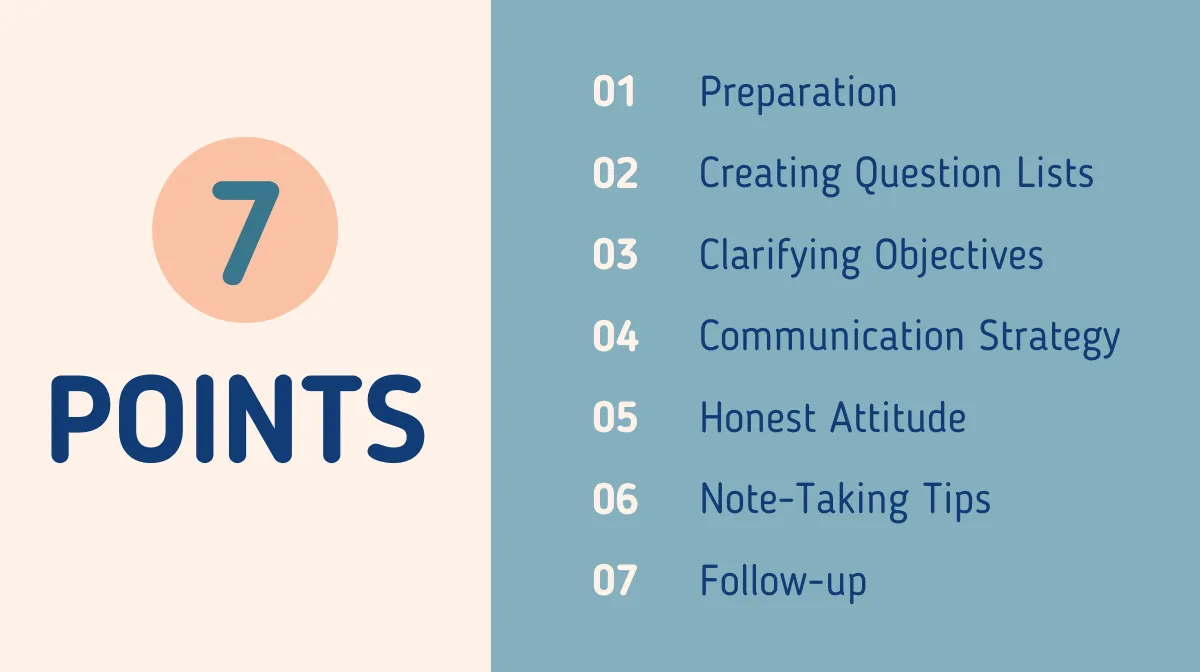
Let’s explain the points for successful casual interviews. Use these as reference to understand the tips for meaningful and successful casual interviews.
Preparation: Thorough Company Research and Self-Analysis
The first step to successful casual interviews is thorough preparation. In company research, particular attention should be paid to technical aspects.
Points to Research in Advance
- Company’s technology stack
- Development environment
- Technical characteristics of main products and services
Reading through the company’s tech blog and technical articles can provide deeper understanding.
For self-analysis, it’s important to take inventory of your current technical skills and organize your development experience. By clearly identifying technical areas you want to improve and setting short-term and long-term career goals, you can make interview discussions more concrete.
Creating Question Lists: Covering Both Technical and Cultural Aspects
An effective question list needs to balance both technical and cultural aspects.
Technical Confirmation Points:
- Development processes
- Workflow
- Code review policies
- Approach to technical debt
- New technology adoption decision process
Cultural Confirmation Points:
- Team communication methods
- Technical decision-making process
- Learning and growth support systems
- Remote work possibilities
- etc.
By asking questions covering these points, you can confirm the compatibility between the company’s technical culture and your own values.
Clarifying Objectives: Organizing Information You Want to Obtain
When approaching casual interviews, it’s important to be clear about what you want to know. Set priorities and organize must-ask items, would-like-to-ask items, and topics to cover if time permits.
By clarifying information gathering focus points such as technical environment details and specific job content, you can effectively use the limited time available.
Communication Strategy: Effective Question and Answer Methods
It’s important to craft your questions carefully for effective communication. Using open-ended questions and including specific examples leads to deeper understanding.
Including background context for questions helps receive more accurate information from the other party.
When answering, aim to explain with specific experiences and achievements, keeping technical context in mind. Also, clearly presenting your thoughts and values enables more constructive dialogue.
Honest Attitude: Conveying Your Commitment to Job Change
Even though it’s casual, sincere communication is important.
Appropriately share:
- Current job search status
- Reasons for considering a job change
- Desired timing for job change
Also, clearly communicating your career outlook, enthusiasm for technical challenges, and consciousness about organizational contribution leads to deeper mutual understanding.
Note-Taking Tips: Reliably Recording Important Information
Knowing how to take notes will make post-interview reflection more productive.
Record:
- Technology stack details
- Development environment details
- Organizational structure
- Decision-making processes
- Specific job duties and roles
- Points of interest and questions
Aim for concise records centered on keywords, clearly separate question responses, and mark points you want to check later for smoother review.
Follow-up: Post-Interview Actions
Appropriate follow-up after the interview is important for building good relationships.
Same-day actions:
- Sending thank-you email
- Organizing additional questions
- Reflecting on interview content
For medium to long-term actions, it’s effective to verify provided information in detail, request additional information as needed, and prepare for next steps.
▼Related Reading
The articles below serve as a job interview guide for foreign engineers in Japan. They explain the information needed to prepare for even casual interviews. Please feel free to use them as a reference.
4.Common Questions in Casual Interviews and Sample Answers

Here are common questions asked in actual casual interviews. We’ve included sample answers to help you in your own casual interviews.
How to Handle Technical Skill Questions
Questions about technical skills are the most important part of engineers’ casual interviews.
Example Question: “What programming languages and frameworks are you proficient in?”
Sample Answer: “I mainly use Python and React, with particularly 5 years of professional experience in Python, where I’ve handled backend development and API design for machine learning projects.”
◎ Point: It’s effective to explain with specific experiences rather than just listing technologies.
Example Question: “Can you tell me about specific project experience?”
Sample Answer: “For the past 2 years, I led an EC site performance improvement project, achieving a 40% reduction in response time.”
◎ Point: Answers including specific achievements are effective.
Additionally, it’s effective to actively utilize self-learning and personal project experiences to demonstrate your approach to technical challenges.
Points for Explaining Career Vision
When explaining career vision, it’s important to show concrete plans and realistic goals rather than just stating future hopes.
It’s effective to clearly distinguish between short-term and long-term goals.
For short-term goals (1-2 years), it’s important to be specific like “I aim to solidify my foundation as a full-stack engineer and reach a level where I can make technical proposals within the team.”
For long-term goals (3-5 years), explain like “I want to contribute to team productivity improvement as a technical lead and be involved in mentoring junior engineers.”
Important to Show Future Goals
Discuss your current status and goals like “While I currently focus on backend development, I’m learning frontend technologies to gain a broader perspective in system design.”
Additionally, connecting with the target company is effective. Making your answer more convincing by linking your career plan like “I’m interested in your company’s microservices transformation project and want to improve my skills in this area.”
How to Appropriately Ask About Salary and Benefits
Questions about salary and benefits need to be asked carefully, but they can be appropriately addressed in casual interviews with the right approach.
It’s important to include context in your questions. For example, clarify your intent like “I’d like to understand the possibilities regarding compensation as part of considering my career plan.”
Making Questions Easier to Ask Through Staged and Multi-Angle Approaches
Ask about systems and structures like “Could you tell me about the evaluation system and salary increase mechanisms?” then follow up with specific conditions like “Are there any general guidelines for compensation based on technical skills and experience?”
Also, you can gather more comprehensive information by asking about various aspects related to benefits, such as “career path and compensation changes based on technical growth,” “flexibility in work arrangements,” and “welfare benefits and technical training support systems.”
■日本でエンジニアとしてキャリアアップしたい方へ
海外エンジニア転職支援サービス『 Bloomtech Career 』にご相談ください。「英語OK」「ビザサポートあり」「高年収企業」など、外国人エンジニア向けの求人を多数掲載。専任のキャリアアドバイザーが、あなたのスキル・希望に合った最適な日本企業をご紹介します。
▼簡単・無料!30秒で登録完了!まずはお気軽にご連絡ください!
Bloomtech Careerに無料相談してみる
5.Precautions and Advice for Engineers’ Casual Interviews

Let’s discuss precautions and advice to avoid failures in casual interviews. Check these points carefully for more productive casual interviews.
Confirming Questions and Topics to Avoid
There are questions and topics that should be handled with particular care in casual interviews. Even if driven by curiosity, being too forward can lead to unsuccessful outcomes even in casual interviews.
Questions about company confidential information are NOT OK!!
- Non-public sales data
- Specific details of compensation systems
- Unannounced product information
Other inappropriate questions to be careful about:
- Direct comparisons with other companies
- Detailed questions about competitors
- Complaints or criticism about current employer
Aim for Constructive Questions
Since negative questions leave a bad impression, aim for constructive questions that work positively.
For example, questions about “development team size and organizational structure,” “technology selection decision-making process,” and “engineer evaluation metrics” can provide valuable information for understanding company characteristics and culture.
Reconfirming Appropriate Attitude and Manners During Interviews
Even in casual interviews, basic business manners are important.
Time Considerations Complete connection preparations 5 minutes before online interviews and strictly observe scheduled times. If you need to leave during the interview, notify in advance.
Communication Aspects Basic considerations like not interrupting the other person and mentioning when you’re taking notes are necessary. Try to accurately understand question intent and honestly ask for clarification when needed.
Don’t Let Your Guard Down Especially in Online Interviews
For online interviews, technical considerations like ensuring stable internet connection, appropriate background settings, camera/microphone testing, and screen sharing preparation are essential. These preparations are important elements for smooth communication.
Thorough Confirmation to Prevent Mismatches
For preventing mismatches, first adjusting expectations in advance is important. Clearly communicate interview objectives, confirm whether there will be technical questions, and verify the interviewer’s position.
Appropriate information disclosure is also important. Share as much as possible about your current job search status, honest self-assessment of technical skills, and specific plans regarding job change timing.
Such information sharing enables more concrete and realistic discussions.
Maintain a Positive Attitude Even If You Feel a Mismatch
Even if you feel a mismatch, continue asking constructive questions and use it as an information gathering opportunity. Don’t forget to end the interview politely and express gratitude.
Also, it’s effective to reflect on points like at what stage you felt the mismatch, whether there was information that could have been confirmed in advance, and how questions could be improved, to learn for future interviews.
6.Successful Casual Interviews Can Expand Your Engineering Career
Casual interviews are important opportunities for engineers to find ideal career moves.
Through careful preparation and understanding companies from both technical and cultural perspectives, better decisions become possible.
Also, by maintaining a professional attitude while aiming for frank communication, it becomes a meaningful information exchange opportunity for both parties.
■Related Reading
The following articles introduce interview preparation for Japanese companies, as well as how to write resumes and CVs.

